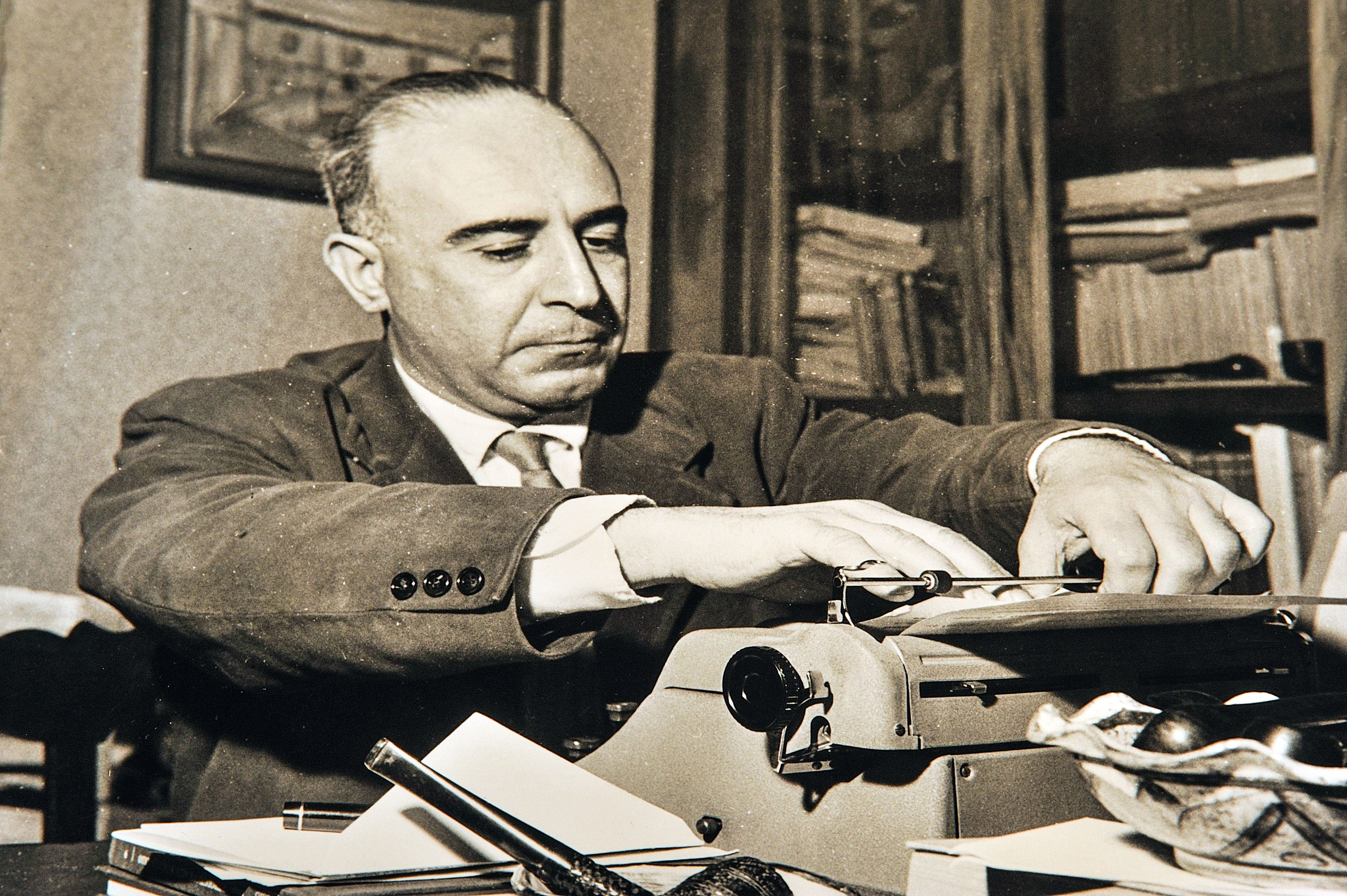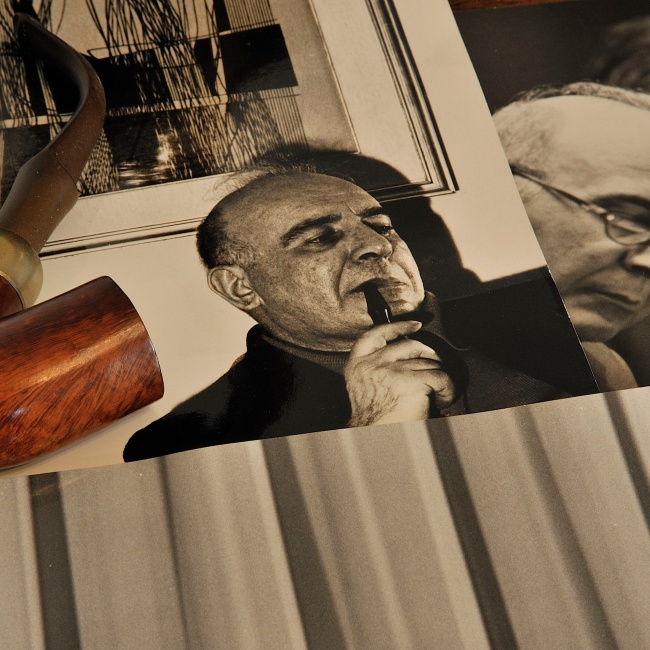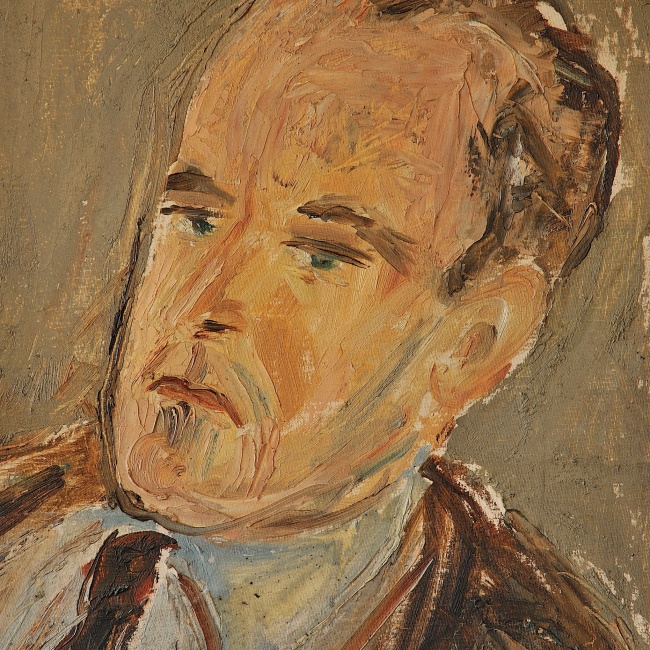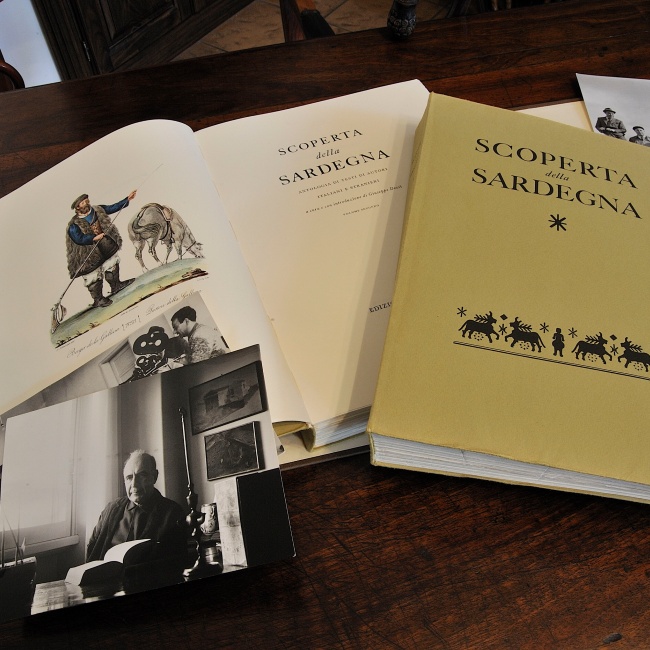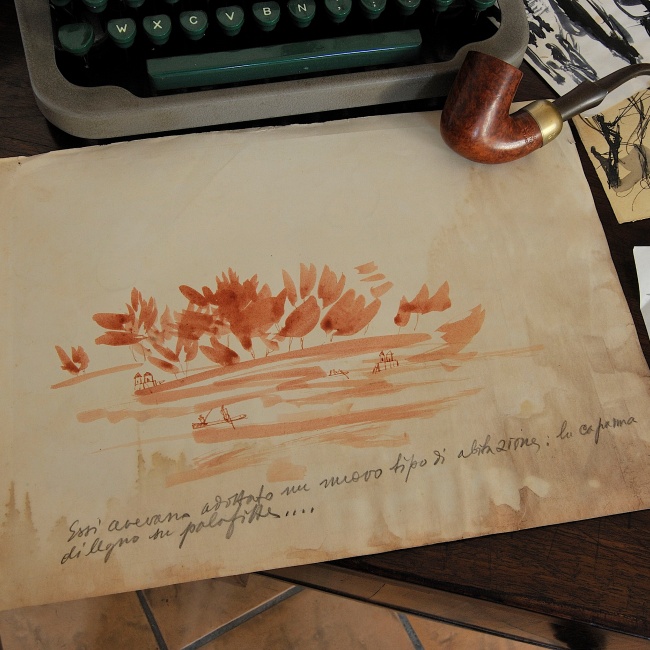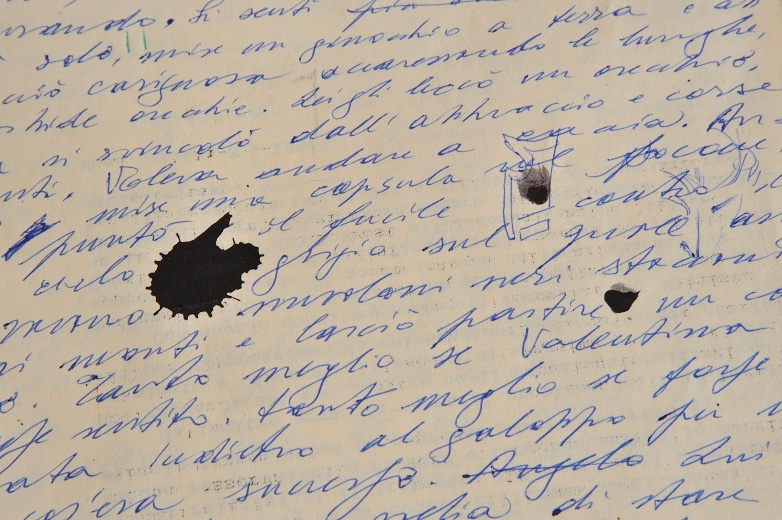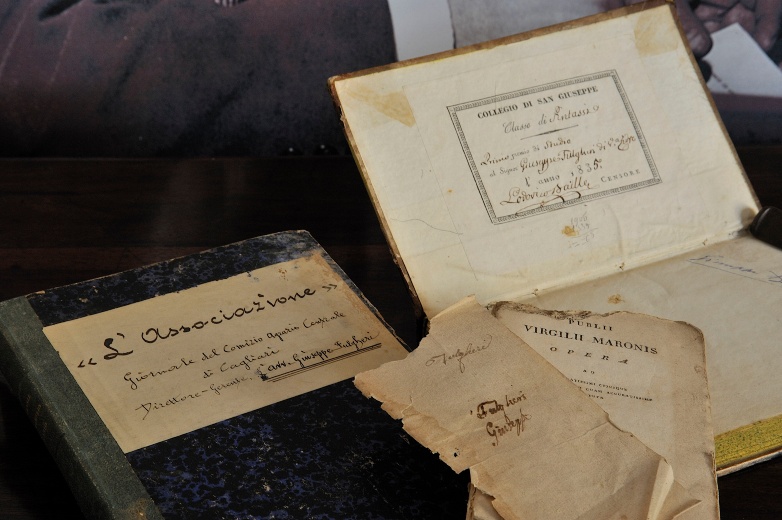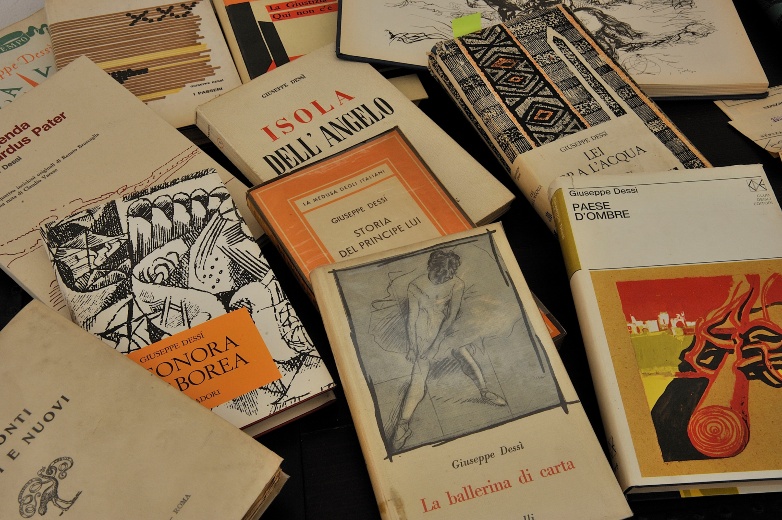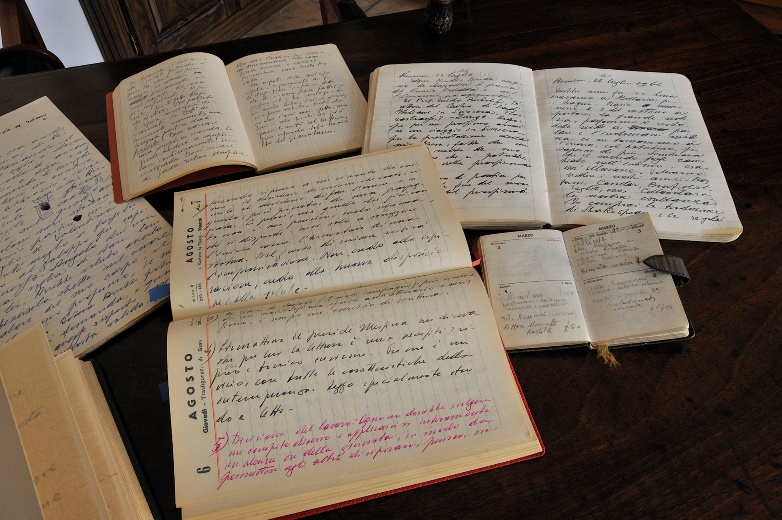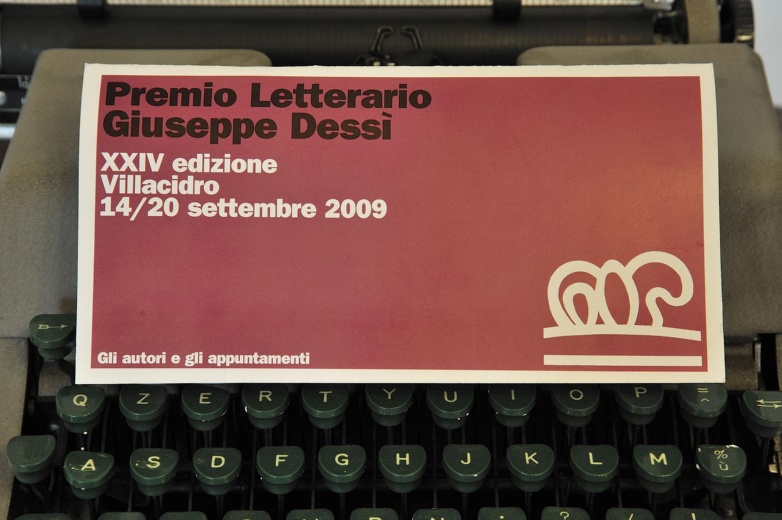Giuseppe Dessì
Giuseppe Dessì, the most illustrious citizen of Villacidro, was born in Cagliari on 7 August 1909.
He lived his childhood and adolescence in Villacidro, first with his maternal grandfather and then in the house purchased by his father, General Dessì. He suffered from the constant absence of his father, to such an extent that he failed his grammar school final examinations.
He withdrew from regular school. Just like in a novel, he discovered a library behind a wall in his grandfather’s house. A great-uncle, who was a Jacobin, left it and upon his death, the relatives had it walled-up. Reading these volumes enriched the boy and destabilized him at the same time.
The return of his father brought back some balance into his life. Once he had finished his upper school studies in Cagliari, he registered at the University of Pisa and received his degree in Liberal Arts in 1936. He began his career as teacher in various cities throughout Italy. In 1939, he was consecrated as a writer with his novel San Silvano, which was the first example of the grafting of Proustian poetics into the Italian literary scene. He went through the essential experience of working for the magazine “La riscossa” in Sassari.
He moved to Rome and in 1961 he published Il disertore (The Deserter), judged to be one of Italy’s finest short stories of its time, winning the Premio Bagutta award with the full consent of literary critics. He then became an inspector for the Ministry of Public Education. In 1972, he won the Premio Strega award with Paese d’Ombre (Town of Shadows). The novel’s protagonist is Angelo Uras and the tale of his entire lifetime is told. The book is set in Norbio, which is actually Villacidro, a small town in the Linas Mountains in which social and political history, as well as personal events and fiction, are interwoven. This work offers a gallery of characters of great importance and blends important themes like ecology, abuse of power and social revolt: fundamental themes to understand the circumstances in Sardinia and throughout Italy during the post World War II period.
After a long illness, he died in Rome on 6 July, 1977. In 1983, the desire to publicise and promote his works and poetic writing style emerged and a national literary award was instituted in his honour. The first edition of the “Premio Letterario Nazionale Giuseppe Dessì” (The Giuseppe Dessì National Literary Award) was inaugurated in 1986 for narrative works and poetry.
Since then, the Award, organised by the Municipality of Villacidro and the Giuseppe Dessì Foundation, has progressed constantly and in 2010 it will host its 25th edition. Over the years, it has developed remarkably and is now considered one of the most prestigious on a national level for quality as well as the number of works presented, for the depth of the participating writers as well as for the seriousness and competence of the jury that is made up of the most esteemed and best known personalities among literary critics and Italian culture.
